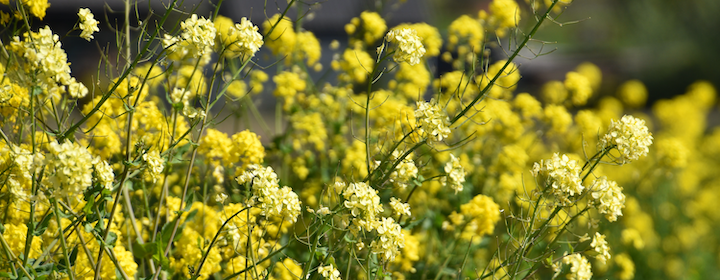There is a well-known Buddhist story about a woman called Kisa Gotami. She was married at a young age, and after many years of trying, gave birth to a precious son, who was her pride and joy. For a few years she was very happy. But then just as her son was reaching the age where he was able to run about and play, he suddenly fell ill and died.
Overcome by shock and grief, Kisa was not able to accept that her child was dead and insisted that he was just sleeping. She lifted him on her hip and wandered from door to door, asking for medicine. People were horrified and didn’t know what to say to her. Eventually, a wise person directed her to the Buddha.
The Buddha said, “I can help you, but first you must bring me a mustard seed.” Kisa was overjoyed, and rose to find one immediately. “Wait,” said the Buddha, “it must come from a house that has never known death.”
Kisa was undeterred and went looking for the magical mustard seed. At each house where she knocked, a person was more than willing to give her one. But when she asked if anyone had died there, it was always the same response: Yes, my father, my mother, sister, brother, husband, wife, daughter, son…
Gradually, as she went from family to family, she realized that her own loss was not unusual. Death was a part of life. She returned to reality and surrendered her son’s body to the funeral rites. And then she returned to the Buddha.
This is a very difficult story… and a radical one. It presents the possibility that through understanding and compassion, we can find the strength to face even the most painful losses that life deals us.
And this has been a year of great losses. Some of us have had devastating losses of friends and loved ones who were gone before we could say goodbye. Some of us have lost jobs, homes, our means of support. Some have had careers, educations or relationships disrupted. Where could we find that magic mustard seed now?
But the magic of the mustard seed lies not in finding it, but in realizing that it can’t be found. Some years ago, I heard that in Thailand, it is common for someone giving a dharma talk to address the audience as, “My brothers and sisters in old age, sickness, and death.” What a way to begin! And yet, isn’t it true?
The Buddha taught that the best way to understand each other is to understand ourselves. The best way to care about each other is to care about ourselves. When we are quiet and pay attention, we begin to see just how vulnerable we are, and how much we want to be truly happy.
Then, when we look at someone else, we know that, fundamentally, it is the same for them. This is how empathy and compassion naturally arise. Simply out of seeing clearly that we are all stuck in this condition of being human together. None of us has the magic mustard seed. But we have to look and really see each other before we are able to accept that.
There seem to be so many forces pulling us apart these days – politics, religion, race, class, gender, sexual orientation…. There are very real problems in our society that need desperately to be addressed.
But, on a deeper level, aren’t we all brothers and sisters in old age, sickness and death? None of us is immune to pain and loss. That is what unites us all, regardless of our identities and circumstances. We are all vulnerable, we all long to be truly happy.
When Kisa Gotami returned to the Buddha, he asked if she had found the mustard seed. She said she was done with the seed, and asked for instructions on how to find true healing and well-being. It’s said that her search had given her such great compassion for her fellow beings that she was able to practice with great sincerity and purpose. And in very little time, she found the peace that she had been looking for all along.



